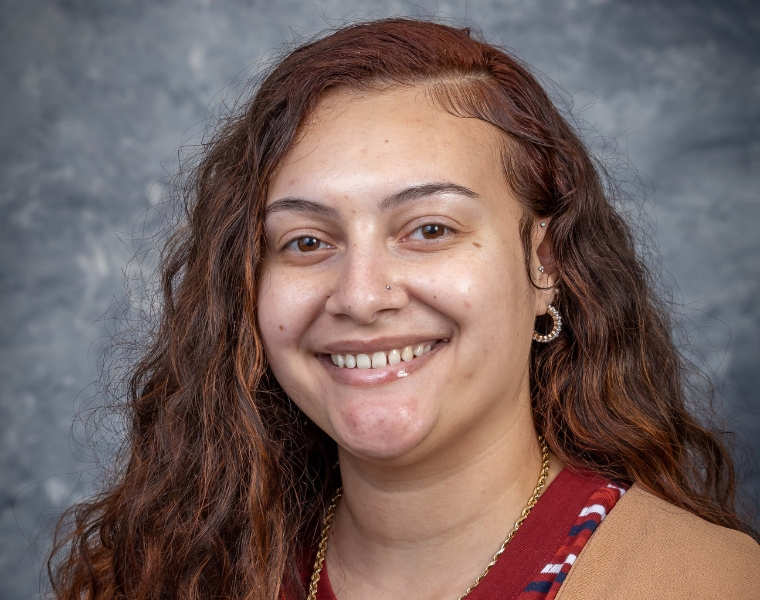When Annika Doneghy shadowed a neurosurgeon in high school, she had a conversation with an intensive care unit patient who recalled his experiences receiving care. In that moment, Doneghy realized her passion wasn’t operating on patients, but understanding and connecting with them, especially those from marginalized communities.
Doneghy’s passion came further into focus during the COVID-19 pandemic when she saw firsthand how families with autistic children struggled with sudden disruptions to their routines and access to resources. This led her to Case Western Reserve University to explore the intersection of various disabilities and natural, biological, or industrial disasters.
Now a doctoral medical anthropology student, she hopes to make a difference by advocating for more comprehensive and accessible emergency management policies and practices.
“I hope my research can help share the narratives of marginalized communities and draw more attention to the issues they face throughout disaster cycles,” said Doneghy, who received a doctoral dissertation grant from the National Science Foundation to begin ethnographic fieldwork in Greensboro, North Carolina, this summer.
Beyond her studies, Doneghy works part-time in the Volunteer Services Department at University Hospitals, serves as chair of the Anthropology Graduate Student Association and is part of the William Averette Anderson Fund—a program that supports students from underrepresented backgrounds who study disasters and how they impact different communities.
From finding her place at CWRU to advocating for more inclusive emergency management, read on for a deeper dive into Doneghy’s research pursuits.
1. What led you to pursue your studies at CWRU?
I have family members with disabilities, and they’ve helped fuel my passion for advocacy and change. Coming to CWRU, I initially didn’t know if I would belong. I had some trouble my first year, but since then I’ve found many communities where I can share my identity and experiences and not worry about whether or not I’ll be accepted. The Department of Anthropology has shown me that the sky’s the limit, and if there’s something you’re passionate about then study it.
2. How do disasters uniquely impact people with disabilities, and what gaps in research or policy do you hope to address?
Disasters disproportionately affect vulnerable groups, but people with disabilities often face exacerbated impacts due to their underlying status in society and may face barriers with accessibility, communication and support systems. First responders and emergency management personnel do not always know how to address the unique needs of people with disabilities, and I hope to address this with my research. Those with disabilities should be included in disaster planning and response discussions so policies can better reflect their lived experiences and best address their needs throughout disaster cycles.
3. In what ways have your support networks helped you remain motivated and focused on your research goals?
Interacting and networking with students from the William Averette Anderson Fund has been great. It’s nice to know that there are so many other underrepresented students pushing to make us more prominent in the field. The Association of Black Anthropologists (ABA) has similarly helped inspire me by showing that Black scholars and professionals are doing great work and achieving things that may not seem possible. As a student, it can be hard to think about my future career and aspirations; however, these groups continue to uplift and support me and provide examples that achievement is attainable.
4. Can you share some accomplishments that you’re most proud of?
Earning a Presidential Service Award was a complete surprise. When I volunteered to serve as co-editor for the ABA section of Anthropology News, I thought I was completely underqualified. But, I earned the position and worked with another co-editor for almost two years until I became the sole editor for about a year and a half. I never would’ve thought I’d earn an award from my time as editor but it felt really nice to be honored and recognized.


